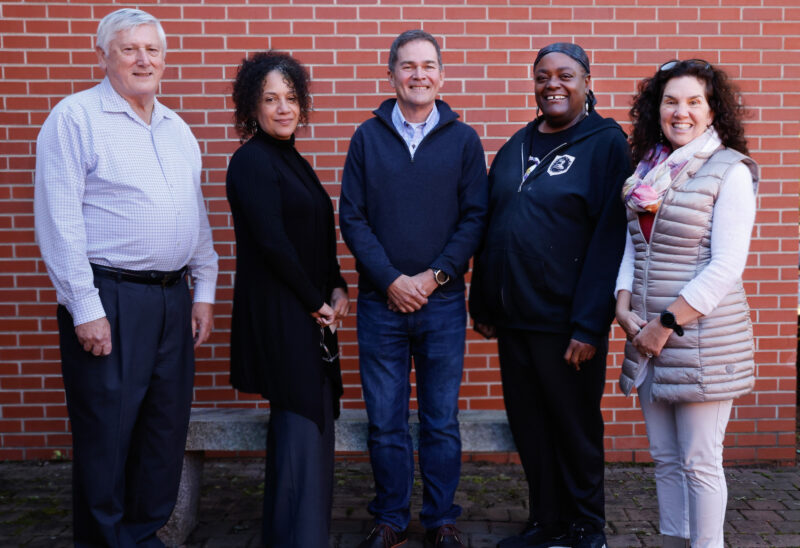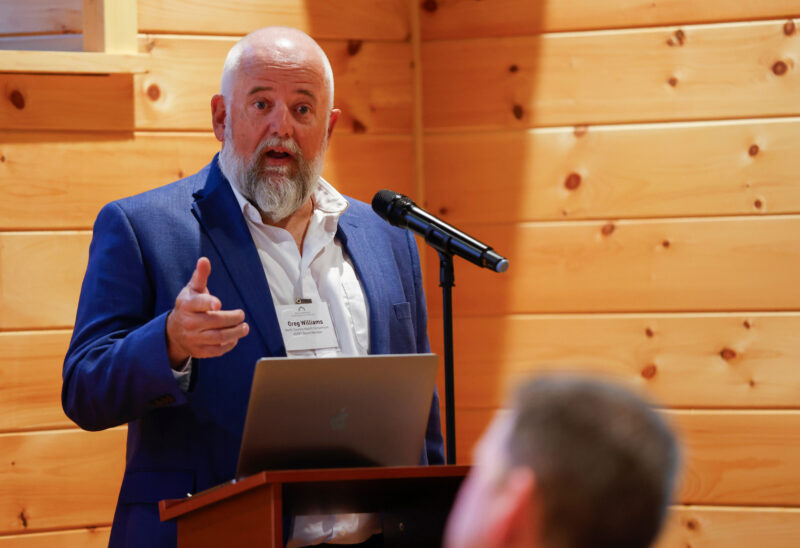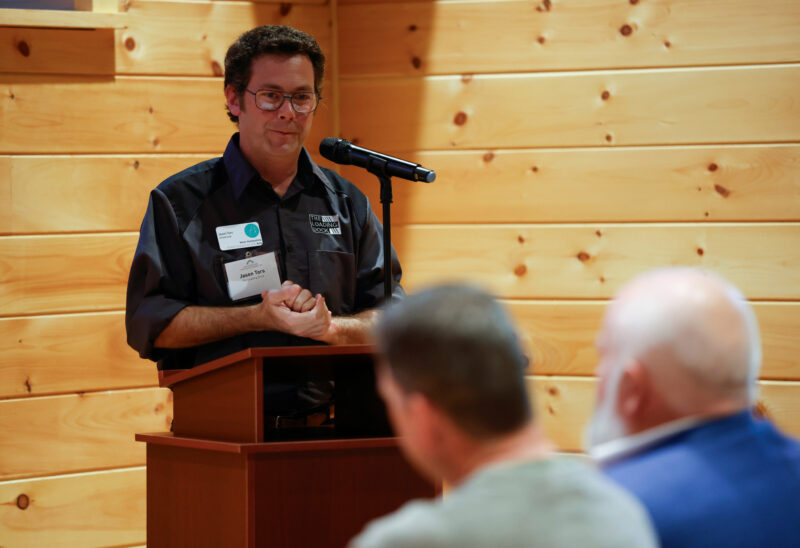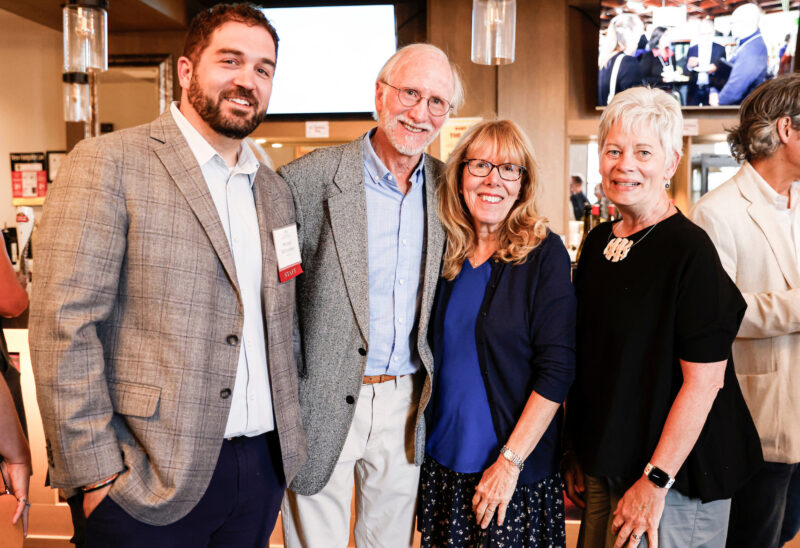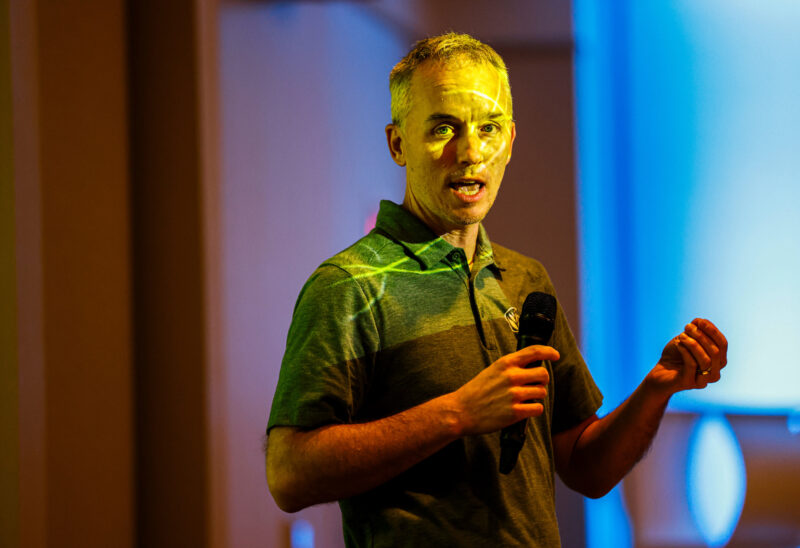Andres Mejia joined the Foundation in June as Director of Organizational Learning and Talent Development. His career has been devoted to community development and building belonging — from the University of New Hampshire to NH Listens to a position as the first director of diversity equity, inclusion and justice at a New Hampshire school district. He serves on the boards of Black Lives Matter New Hampshire, the Racial Unity Team, and the Black Heritage Trail of New Hampshire. He talked to the Foundation’s Lois Shea about the importance of making sure communities work for everyone. Andres lives with his family on the Seacoast.
Tell me why this role at the Charitable Foundation is the logical next chapter in your life’s work?
Knowing the great work the Foundation is doing, and that all my career has had to do with equity and belonging and creating spaces in community where everyone can feel and know that they belong. My work is about bringing people together to better our communities so they work for everyone, and especially for people with marginalized identities — people with disabilities, LGBTQ+ people, people of color.
How do you describe your role at the Foundation?
I am supporting the Foundation with professional development and organization-wide growth. The Foundation has done great work, and my job is to come and support turning that learning into action. If everyone feels a sense of belonging within the organization, then we can be better at creating belonging and building relationships in the wider community.
You were one of the lead plaintiffs in the successful lawsuit against the so-called “banned concepts law” that limited how public school students could be taught about a variety of concepts. Why did you feel it was important to add your voice to that?
The law was really creating a space where students of color, students in the LGBTQ+ community, people with marginalized identities were not going to be able to be taken care of. Once that law got passed, there was an increase in incidents of bias and discrimination that were not being addressed appropriately. There were LGBTQ+ kids being bullied and teachers not knowing if they could stop it. Kids being called the N-word. Trans kids having videos sent to them of people burning the LGBTQ+ flag in their backyard. My office at the school district had boxes of books and on the floor that were taken out of the classrooms because teachers were like “we don’t know if we can teach these.” I have had a teacher take “safe space” stickers off their windows, take LGBTQ+ flags off their classroom walls, all because of this law that was so vague. It scared a lot of people. A person came to me and said “Hey, can this book be on the shelves?” It was a book about a grandmother teaching a grandson how to make empanadas.
I have been living in New Hampshire for a long time and people have a right to be here. They should not feel like “can I be here?” Children should be able to go to a school and see themselves reflected in their learning material.
It was a fight that had to be done.
I have a one- and a two-year-old, and one day it would be nice for them to be able to go to school wherever they want and feel like their lives matter.
We all choose New Hampshire for various reasons — if we are transplants from elsewhere, like I am, or if our families have been here a long time and we keep choosing this place. What is your “why New Hampshire” story?
My career path has kept me in New Hampshire — from UNH to Exeter to here. And I really do believe that the work that I do and the lens that I bring is much needed in New Hampshire. Everyone has a right to be in New Hampshire and to survive and to live and to work and be educated and breathe in New Hampshire if they want to. So I am here to do the work to help people feel the sense of belonging that they deserve to feel.
What movie or book do you find yourself suggesting to people?
The movie “Origin.” It is the story of the writer Isabel Wilkerson and what it took to write the book “Caste.” You have to make sure you are in the right place for that, though — lots of tears watching that one.
What did I not ask that you would like to mention?
People ask me: You have been through so much, how do you still do it? And I think it is love. We are all connected. People in the past who fought for rights and belonging, they knew it wasn’t for them, but they were fighting for others, and I am doing that. I choose to be in these spaces doing this and it keeps me going when I see change happening, when I see smiles on people’s faces.
One of my favorite songs is ‘My Love is Your Love’ by Whitney Houston. Part of the song says, “even the chains of Amistad couldn’t hold us.” Once our hearts are connected, no evil that anyone is doing around us is going to break us or keep us from moving forward.

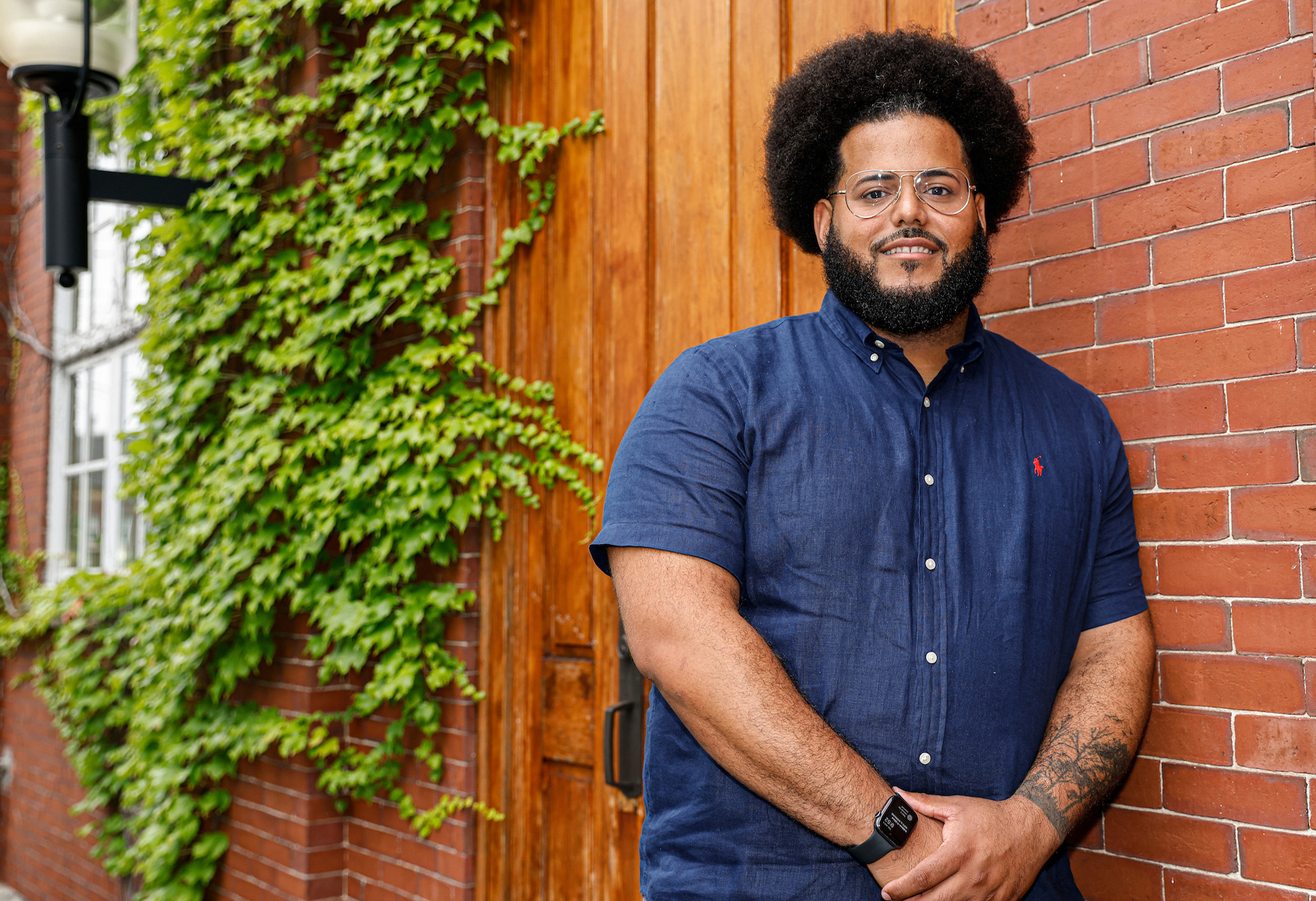






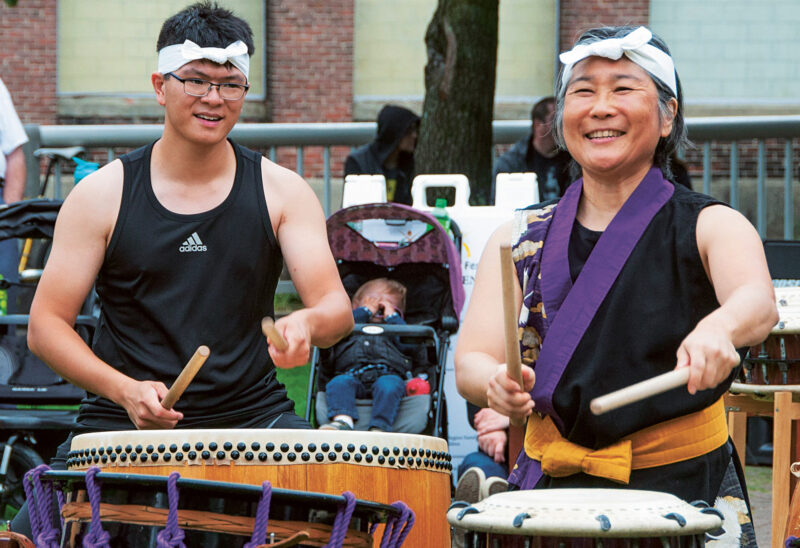
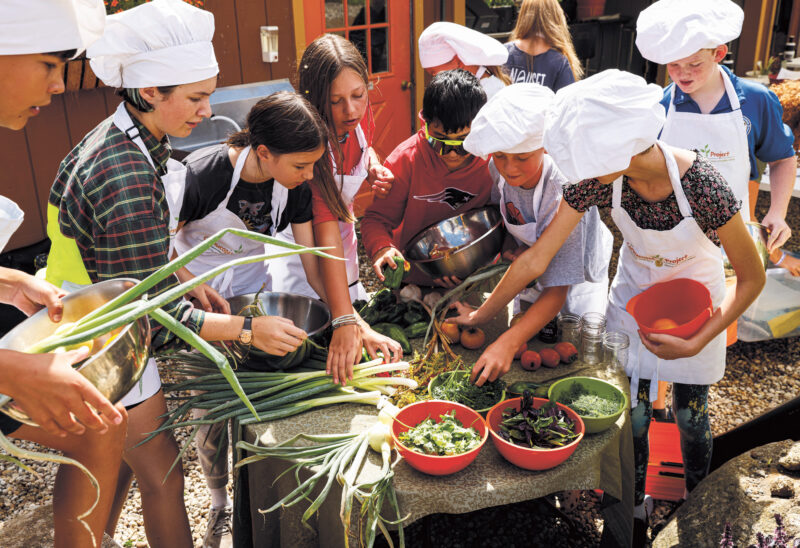
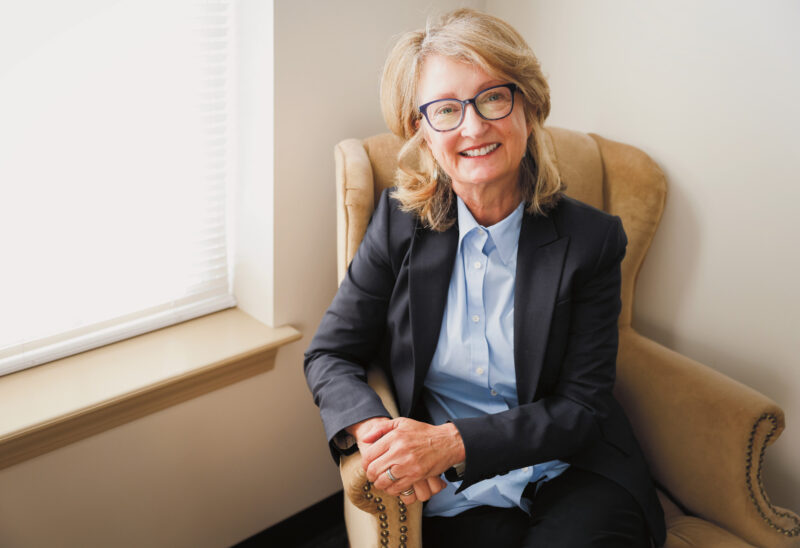
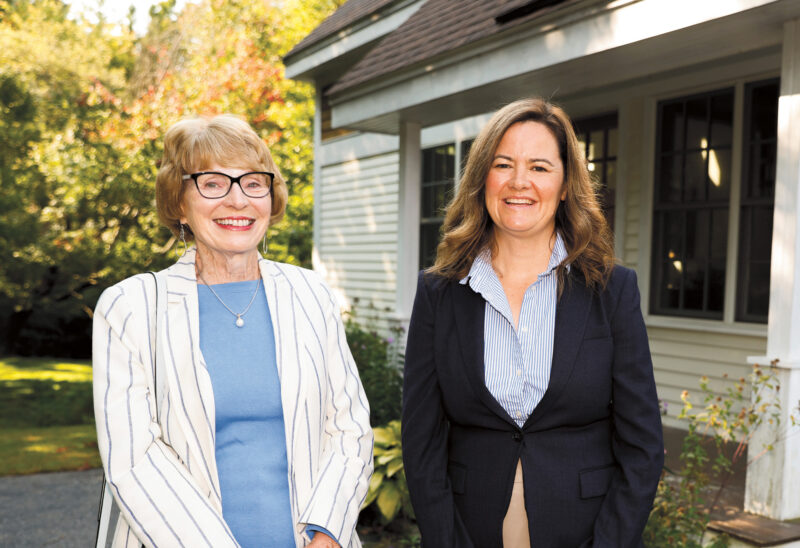
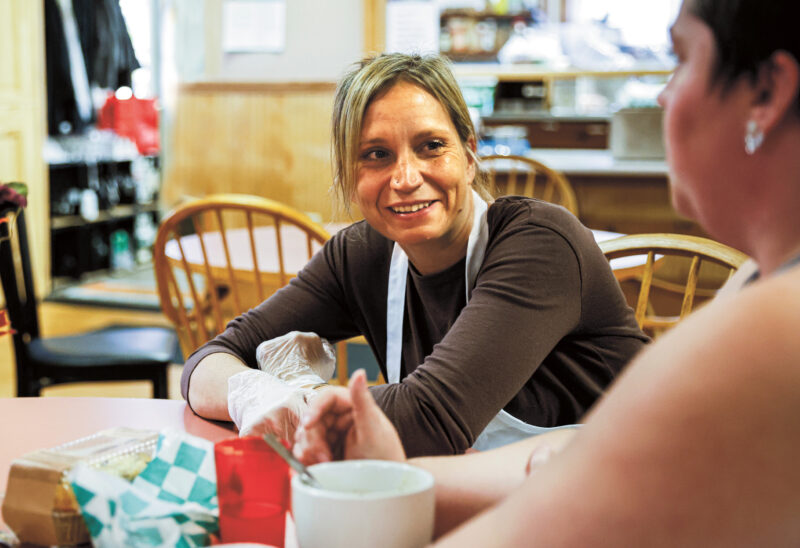
![Charitable Foundation President Dick Ober [Photo by Cheryl Senter]](https://www.nhcf.org/wp-content/uploads/2023/12/dick-ober-purpose-fall-winter-2023-800x548.jpg)
